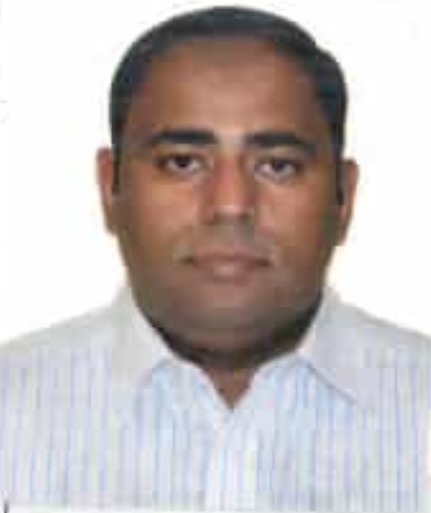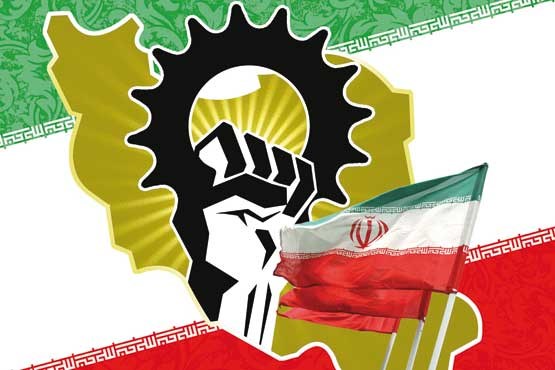

By
Stewart Bell &
Jeff Semple
Global News
Published March 16, 2023
11 min read

On Nov. 21, 2017, U.S. Customs and Border Patrol agents at the Port of Newark, N.J., seized an industrial microwave system that its export papers said was going to Dubai.
But according to U.S. investigators, the city was only a transit point for the “highly sensitive” device, which can be used to make powerful directed energy weapons.
The final destination was Tehran, they said, to a technology company that was on the U.S. sanctions list for supplying Iran’s notorious Islamic Revolutionary Guard Corps.
For his alleged role in the scheme, a 43-year-old Toronto business consultant named Bader Altaf Fakih was indicted by the U.S. Justice Department.

An Indian citizen who lives in Whitby, Ont., Fakih is also accused of attempting to buy two counter-drone systems worth US$1 million for the same Iranian purchasers.
The charges awaiting him in U.S. District Court include money laundering, conspiracy, aiding and abetting, and evading sanctions. His Toronto-based tech company Ipaxiom is also named as a defendant.
But while the U.S. case against Fakih was announced over a year ago, Canadian authorities have not arrested him. His only court proceedings on this side of the border concern his application for Canadian citizenship, with the help of the office of a member of Parliament.
On the same day his indictment was unsealed in Washington, D.C., on Jan. 27, 2022, Fakih filed a case against the government in the Federal Court in Toronto, arguing a “duty is owed” to him to process his citizenship application.
“I would like to place a humble/plea request to expedite the processing of my application as it has impacted and held me from attending many important events,” he wrote in an email to immigration officers on May 2, 2022.
Canadian immigration records show that, on three occasions between 2019 and 2022, Liberal MP John McKay’s office made inquiries on Fakih’s behalf about his bid for citizenship.
Asked why his office had helped Fakih, McKay said in a statement that “constituents are entitled to reach out to their MP’s offices for assistance related to services or programs offered by the federal government.”
McKay, who chairs the standing committee on national defence, declined to respond to questions specifically about Fakih.
Were he to obtain Canadian citizenship, Fakih could not be deported — although he could still be extradited to stand trial in the United States.
Canadian authorities would not say whether the U.S. had requested Fakih’s extradition.
He told immigration officials in an email that while his brother was “involved in a legal matter” in the U.S., he had “not been provided with any court documents indicating that I am personally being charged or involved in any criminal acts relating to the case.”
Saber Fakih, an Ipaxiom official based in the United Kingdom, has already pleaded guilty to violating U.S. sanctions against Iran, and the indictment against Bader Fakih was filed in court in Ottawa in January as part of his citizenship case.
A spokesperson for the U.S. Attorney’s Office for the District of Columbia, Patty Hartman, said Fakih was still wanted for allegedly evading sanctions put in place to contain Iran and its Revolutionary Guard.
In a phone call, Fakih said he had been advised not to comment. However, he said he opposed the Iranian regime, and new information would be forthcoming about the case, although he would not elaborate.
“I’m not a criminal,” he said.
Five months ago, Prime Minister Justin Trudeau announced “the most robust and comprehensive set of sanctions in the world” against the Revolutionary Guard, or IRGC, the armed group that protects Iran’s clerical regime.
The policy banned thousands of IRGC members from Canada. Trudeau vowed to spend $76 million “to implement sanctions and ensure the government can move more quickly to freeze and seize” Iranian assets.
The measures were a response to growing concern about the IRGC following Iran’s repression of demonstrators protesting the death of Mahsa Amini, killed by so-called morality police for showing her hair.
The IRGC also shot down a Ukraine International Airlines flight on Jan. 8, 2020, killing 85 Canadian citizens and permanent residents. In addition, it has supplied Russia with drones used to attack Ukraine.
But the results of Trudeau’s sanctions are unclear. The RCMP said it was still awaiting its share of the new funding to enforce them and hoped to begin work in the next fiscal year.
The Canada Border Services Agency would not say what action it had taken specifically against those linked to the IRGC but said dozens of individuals with ties to the Iranian regime had been denied entry to Canada, and 60 cases were under investigation.
A “number of cases” will be referred to the Immigration and Refugee Board of Canada for hearings that could result in deportation, spokesperson Rebecca Purdy said.
But she said nobody had yet been removed from Canada as a result of the new sanctions. And the refugee board said it had no record the government had initiated deportation proceedings against Fakih.
“There seems to be a real mismatch between the government’s rhetoric and its actions,” said Toronto lawyer Kaveh Shahrooz, a senior fellow at the Macdonald-Laurier Institute think tank.
“There have been several cases now, and it doesn’t seem like the government is taking strong enough action to prevent people from providing logistical and financial support to the Iranian regime.”
Ramin Joubin, a Vancouver lawyer active in the group StopIRGC, said Iranian-Canadians had been sending the names of IRGC members in Canada to immigration authorities but had not seen action.
“The laws against them are rather weak,” he said.
Fakih was born in Kuwait and moved to the U.S. in 1999. He studied business administration in Pennsylvania, and came to Canada in 2010 as a visitor, his immigration records show.
A work permit issued in 2011 allowed him to take a job in Markham, Ont., and he and his wife were accepted as permanent residents in 2014.
The following year, he incorporated Ipaxiom Solutions, listing a residential apartment in the Scarborough area of Toronto as its head office. He is the only director. Ontario government records identify him as the president, secretary and treasurer.
Headquartered in Canada, the company has offices in the United Kingdom and the People’s Republic of China, according to Fakih’s indictment.
Fakih is a business consultant with a “diverse client portfolio,” according to his LinkedIn profile. But Ipaxiom’s alleged dealings with one particular client caught the attention of the U.S. government.
In May 2017, Saber, a British citizen, was approached by an Iranian national named Alireza Taghavi, according to U.S. court records.
Taghavi and his associate Jalal Rohollahnejad “held themselves out” as representatives of a Tehran company called Rayan Roshd Asfzar, U.S. prosecutors alleged.

Rayan Roshd Asfzar “has produced technical components for the IRGC’s unmanned aerial vehicle program and has sought to repair IRGC military equipment,” the U.S. sanctions claim.
The company also “worked to produce software for the IRGC’s aerospace program. Additionally, Rayan Roshd has produced tools that supported IRGC efforts to restrict and block social media and telecommunications content in Iran.”
The U.S. allegations concern a suspected procurement network that attempted to buy components required to make directed energy weapons, which focus beams of energy on targets such as drones, and a second system that can identify and take control of drones.
A week after the U.S. sanctioned Rayan on July 18, 2017, Taghavi sent an email to Saber with an agreement to buy an industrial microwave system, or IMS, from a U.S. supplier for US$450,000, according to the latter’s guilty plea. The price included “re-export charges from Dubai to Iran.”
The proposed consultant agreement was copied to Fakih on July 30, according to the U.S. allegations. The file name of the document was “ServiceAgreement_Iran.”
Taghavi told Saber separately he “could not purchase the IMS directly” because he was Iranian, according to the guilty plea, which said Saber agreed to help for a US$15,000 fee.
The indictment against Fakih alleges that on Sept. 5, 2017, a US$69,965 transfer was made to his account in Canada, followed by a US$240,000 transfer. A third payment of $85,965 allegedly followed on Sept. 7. The money was sent from Dubai and through Canada “to overcome money laundering issues,” according to Saber’s guilty plea.
The next day, Fakih used his Ipaxiom account to wire the same amount to the Massachusetts company selling the IMS, the indictment alleges. According to U.S. allegations, the wire transfer falsely stated it was for “purchasing equipment to start a business.”
Meanwhile, the indictment alleges Fakih and Saber began negotiating to purchase counter-drone systems from a Maryland company in June 2017.
Saber emailed an invoice to the Iranian client on Aug. 3 and allegedly copied Fakih, requesting a US$20,000 “agent fee” because “the company in Canada is taking a huge risk,” the indictment against Fakih alleges.
Fakih emailed the company selling the drone system on Oct. 11, saying he “should be able to close the deal shortly,” the indictment alleges. He allegedly emailed again on Oct. 25 to say “we got verbal go ahead from our client.”
The Iranians never sent the money to pay for the counter-drone system, according to U.S. officials, and the industrial microwave system only made it as far as Newark, where it was intercepted.
A grand jury indicted Fakih, Ipaxiom and three alleged associates in 2018, U.S. court records show.
The Iranian allegedly behind the plot, Rohollahnejad, was arrested at Nice airport in 2019 on a U.S. extradition warrant. But the French government released him in March 2020 in a prisoner exchange that saw Iran free a French researcher held on espionage charges.
On the day Rohollahnejad returned home, Iran’s state-controlled press showed him arriving at the airport to a hero’s welcome, and portrayed his release as a victory against the “illegal sanctions regime” of the U.S.
Filmed next to a portrait of the late IRGC commander Qassem Soleimani, Rohollahnejad was quoted as denouncing the U.S. “false charges” against him and thanking the IRGC intelligence unit for securing his release.
The U.S. rebuked France for letting him go.
“There are multiple outstanding U.S. charges against him related to the illegal export of equipment with military applications in violation of U.S. sanctions,” the State Department said.
But on Aug. 5, 2021, the U.S. arrested another suspect in the case: Saber Fakih.
By then, Bader Fakih’s application for Canadian citizenship, which he filed in 2017, had been suspended by immigration officials.
An investigation was “initiated by a referral from security partners,” according to an Immigration, Refugees and Citizenship Canada report, which described the case as a “national security” investigation into a “threat to Canada.”
Four days after the investigation began, Fakih sent an email to MP John McKay’s office about his citizenship.
“I am reaching out now as this is beyond comprehension for me as to why it is taking this long,” he wrote.
He followed up a week later.
“I wanted to reach out to you to see if you were able to hear back and get an update on my citizenship application. Please advise,” he wrote.
“Here you go,” McKay’s office responded two hours later in an email that said “security verifications” were in progress.
Another email requesting an update followed from McKay’s office on Jan. 14, 2022, records show. Two weeks later, the U.S. unsealed its case and announced that Saber had pleaded guilty and faced up to 20 years in prison and a US$1-million fine. His lawyer declined to comment.
The Canadian Security Intelligence Service’s security screening branch wrote in a Feb. 28, 2022 report that it had completed its investigation. Parts of the “Secret” report were blacked out before it was filed in court.
“The information of concern relates to the violations of the International Emergency Economics Power Act and Iranian Transactions and Sanctions regulations by Mr. Fakih,” the document reads.
It then summarized the U.S. case, alleging the Iranians had wired $450,000 to the UAE, where it was converted from Emirati currency into U.S. dollars and transferred to Fakih in three wire transfers.
“Mr. Fakih then transferred the money to the U.S. company for the purchase of the IMS,” CSIS wrote.
He and Saber had also “conspired to purchase two counter-drone systems” for the buyers in Tehran, the report added.
“Potential uses of the IMS (with some modification) include high-power microwave based directed-energy weapons systems,” the CSIS official wrote.
The CSIS report noted that the Quds Force, the IRGC branch responsible for “exporting the Iranian Revolution,” had been listed as a terrorist group under Canadian law since 2012.
“Decisions regarding the granting of citizenship rest with your department,” the acting chief of the CSIS security screening branch wrote. “We would appreciate being advised of your final decision.”
Seeking more information on Fakih, the Citizenship Security Assessment Team (CSAT) at Canada’s Immigration Department wrote to the FBI Assistant Legal Attaché at the U.S. embassy in Ottawa on May 13, 2022.
The FBI responded on June 16, 2022, that Fakih had been indicted in the U.S. for sanctions evasion and “our service remains interested in Bader Fakih’s status in Canada.”
A spokesperson for Canada’s Department of Justice, Geneviève Groulx, declined to say whether the U.S. had requested Fakih’s extradition.
“Because extradition requests are confidential state-to-state communications, we cannot comment on the existence of a potential request until made public by the courts,” she said.
The RCMP also declined to comment on the case.
The U.S. has sanctioned Rohollahnejad for “procuring goods on behalf of Rayan Roshd Afzar.”
The Iranian company did not respond to requests for comment. Its website quotes a speech by Iran’s minister of defence about the role of the defence industry.
“Thank God, in the recent period, despite the sanctions and limited resources, great steps have been taken in strengthening the defence base,” it said.
Stewart.Bell@globalnews.ca


Comments